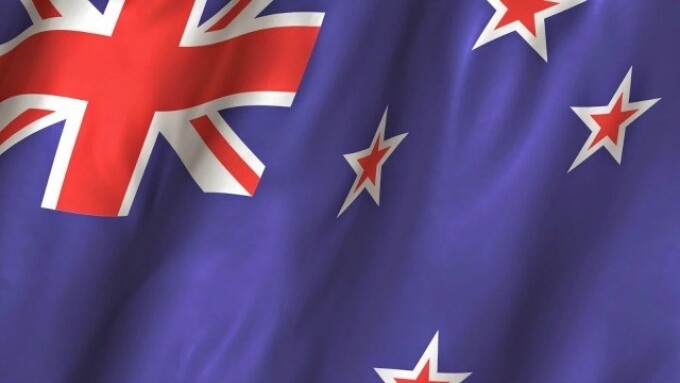WELLINGTON, New Zealand — A campaign to create new policy by viewing porn as a “public health crisis” will be presented to New Zealand’s Parliament on Wednesday.
An “official” petition, with more than 22,000 signatures, calls on Parliament to approve an expert panel to investigate the effects and societal harms of porn.
The petition, sponsored by the director of Family First New Zealand, resembles proposed resolutions made elsewhere, particularly in the U.S.
Last year, Utah’s governor signed off on a resolution declaring porn a “public health crisis.”
Other states, including Virginia, Arkansas and South Dakota, have passed new measures, joining Utah as states that now view porn as a “public health crisis.”
While resolutions over making porn a “public health crisis” might seem without teeth, the state of Utah has taken its “public health crisis” farther.
Two weeks ago, Utah become the first state to allow civil lawsuits against distributors of adult content for mental and physical damages incurred by minors accessing such material.
London-based Jerry Barnett, a former adult website owner who formed the Sex & Censorship campaign in 2013 after witnessing attacks on free speech and sexual freedom in his country, said the New Zealand petition is basically a narrow attack on free speech.
Barnett told XBIZ: “The ‘public health’ claims against porn have been resurrected in various forms over the past couple of decades, and entirely lack any underpinning in evidence."
“Instead, they represent a thinly-veiled morality movement, formed of an unholy alliance between feminists and the religious right,” he said. “Let's be clear: much data is available, and it broadly points in the opposite direction: porn availability correlates broadly with beneficial outcomes (including decreasing rates of sexual and domestic violence in the West).
“As I explain in my book ‘Porn Panic!’ pornography is a good excuse for authoritarians to roll back Internet freedom. Censorship, in fact, poses a far greater threat to public health than pornography does.” (Barnett’s book is available through Amazon U.K. and Amazon U.S.)
The Free Speech Coalition’s executive director, Eric Paul Leue, said that like in the U.S., talk of porn as a “public health crisis” is a pretext for a moral crusade, as it now has become in New Zealand.
“For an organization that claims to be ‘investigating’ the effects of pornography, the text on their site — which links porn to sexual assault, aggression and "abnormal sexuality" — confirms they've already reached their conclusion,” Leue told XBIZ. “We expect to see them repeat same unfounded claims that were made in Utah last year, and in the Republican platform this summer, and from anti-porn moralists across the country in the past few months.”
Leue continued by repeating a statement he has been making as more anti-porn organizations confront legislative bodies in various states and nations with their agenda. The FSC is based in California and represents the adult entertainment trade in the U.S.
Leue said: “No reputable, science-based public health organization has labeled pornography a public health crisis. Not the U.S. Department of Health and Human Services, the U.S. Centers for Disease Control and Prevention, the National Institutes of Health, the American Medical Association, the American Academy of Pediatrics, or any state health department.”
“For religious conservatives, anti-sex legislators, and anti-porn censors, the rise in accessibility of adult material, coupled with a conservative political moment, has become a cause for action,” he said. “They claim that this access to porn will result in more sexual assault, destroy marriages, and contribute to a myriad of other social ills, from sexual dysfunction to homosexuality.
“Ironically, over the past two decades, the same period in which adult content thrived, sex crimes, including sexual assault plunged (even as reporting has gone up). The divorce rate is at a 35-year low. Teen pregnancy is rarer than it has been in the past 50 years. The anti-porn activists may paint a picture of a world out of control, but the facts don't support it. What the data shows instead is that men who watch porn are more likely to agree with feminist principles, to have better sex lives, and greater tolerance for sexual diversity.”
In New Zealand, Bob McCoskrie, the national director of Family First, will ask Parliament to create a commission to probe porn and report back to lawmakers.
McCoskrie, in an opinion piece today in NZHerald.co.nz, said that “yesterday’s porn is today’s mainstream media” and that porn’s public expense is similar to the costs of allowing tobacco to be consumed by users — “addictive” with “significant harm.” He called on Parliament to confront the “public health crisis.”
McCoskrie has created a dedicated site for the New Zealand proposal. It can be found here.







